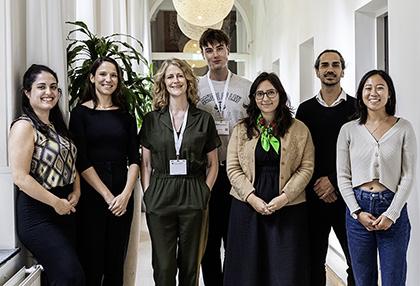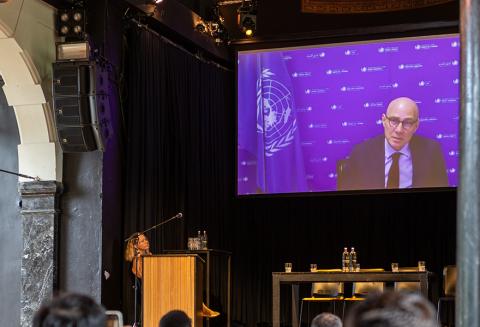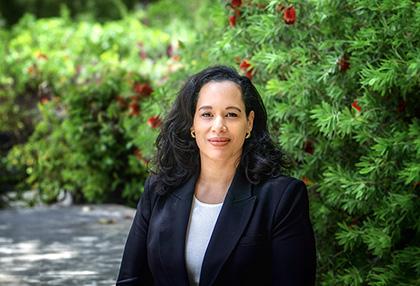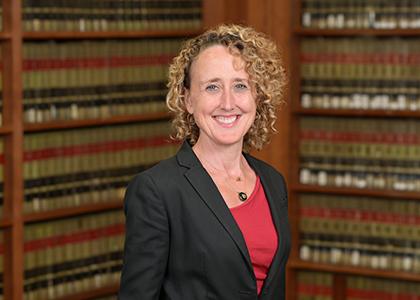
The Promise Institute for Human Rights, the Atlantic Council’s Strategic Litigation Project, and the Iran Digital Archive Coalition invite you to an in-person event on Friday, September 20, 2024 from 2:00 – 5:30 PM PT at The Promise Institute for Human Rights at UCLA School of Law in Los Angeles, California.
Two years after the killing of Mahsa Jina Amini and the emergence of the Woman, Life, Freedom movement, victims and survivors have yet to see justice for the atrocity crimes and human rights violations committed against them. In response to this accountability gap, a coalition of open source investigation experts and human rights groups came together to preserve, verify and analyze vulnerable digital artifacts recording serious human rights violations committed by the Islamic Republic of Iran against protesters.
The work of the Iran Digital Archive Coalition has contributed to the preservation of over two million pieces of content housed at Mnemonic, has submitted material to the investigation and findings of the UN’s International Fact Finding Mission on the Islamic Republic of Iran, and has published reports verifying digital content indicating the commission of several different violations, including enforced disappearance and gender persecution.
In light of this work, the Iran Digital Archive Coalition will be hosting an event to discuss ongoing efforts and the pathway forward to achieve accountability for human rights violations carried out during the Woman, Life, Freedom protests. The event will begin with a brief introduction to the Iran Digital Archive Coalition, followed by a conversation with Afsoon Najafi, sister of Hadis Najafi who was shot and killed by Islamic Republic of Iran security forces during the Woman, Life, Freedom protests. Representatives of the Iran Digital Archive Coalition will then participate on a panel to present the findings of each of their organization’s reports on recent human rights abuses. Following a short break, we will be joined by Elahe Tavakolian, who took to the streets during the Woman, Life, Freedom protests and was shot and blinded by Islamic Republic security forces. Finally, the event will conclude with a conversation between Sara Hossain, Chair of the UN Independent International Fact-Finding Mission on the Islamic Republic of Iran and Actor and Activist, Nazanin Boniadi.
Register Now
Please join us for a timely event that examines U.S. abortion restrictions in contrast to global trends toward greater abortion protections. Panelists will look to other countries as well as international human rights norms for clarity – and discuss how to bring international standards to bear in the fight for abortion rights at home.
Speakers
- Elise Keppler
- Executive Director, Global Justice Center
- Lara Stemple
- Assistant Dean, Faculty Affiliate of UCLA Law's Center for Reproductive Health, Law, and Policy
- Irum Taqi
- Director of Global Policy, Guttmacher Institute
- Grace Meng - Moderator
- Executive Director, UCLA Law's David J. Epstein Program in Public Interest Law & Policy
- Executive Director, UCLA Law's David J. Epstein Program in Public Interest Law & Policy
Wednesday, September 18, 2024
12:15 PM Pacific Time
In-Person at UCLA Law in Room 1430 and Virtually on Zoom
The Williams Institute's 2024 NYC Fall Salon will take place on Thursday, September 12 from 6:00-8:30 PM at the Meta office in Hudson Yards.
We invite you to join our discussion on the current state of LGBTQ+ law and policy and what’s at stake in the upcoming November election and beyond.For tickets to our 2024 NYC Fall Salon, please visit: https://bit.ly/NYCFallSalon24RSVP ends on September 4, 2024.
For more information, please contact Williamsdev@law.ucla.edu.

Dozens of the world’s top thought leaders and advocates in international law, human rights, racial justice and ecological crises convened in Amsterdam, the Netherlands, from May 27 to 29, for a conference marking the launch of UCLA School of Law’s the Promise Institute Europe.
“The conversations I had with other activists and scholars about ecocide and indigenous sovereignty were incredibly thought-provoking and inspiring. These connections are ones that I will continue to cherish and will undoubtedly have a lasting impact on my legal career.”

Conference panels included “Conflict, Environmental Harm and International Criminal Law,” “Climate Change, Justice and the Future of the Law of the Sea,” “Environmental Rights and Climate Justice,” and “Evidence, State Responsibility and the Voices of the Most Vulnerable.”
“The conversations I had with other activists and scholars about ecocide and indigenous sovereignty were incredibly thought-provoking and inspiring,” says UCLA Law student Julia Nguyen ’25. “These connections are ones that I will continue to cherish and will undoubtedly have a lasting impact on my legal career.”
In his keynote address, Volker Türk, the United Nations High Commissioner for Human Rights, expressed support for classifying ecocide as a new international crime. In another keynote presentation, Nazhat Shameem Khan, a deputy prosecutor at the International Criminal Court, said, “We know that unchecked environmental degradation poses an existential threat to the world as we know it. The international legal system, including the ICC, stands at a crucial juncture where we must remain relevant and respond to this crisis before it is too late.”
Cheryl Bazard, the ambassador of the Bahamas to Belgium and the European Union, also addressed the topic in a stirring speech. “Devastating storms, rising sea-levels, unpredictable weather patterns and other adverse effects of climate change threaten the very existence of our islands and the livelihoods and identities of our people,” she said. “The obligations of states in respect of climate change are not an abstract legal exercise, but a matter of survival.”
In addition, the Promise Europe hosted a high-level consultation for the ICC prosecutor, Karim Khan, regarding his forthcoming policy paper on environmental crimes. This allowed him and Kevin Jon Heller, a scholar of international law and special advisor to the ICC, to hear from a broad array of viewpoints, including from environmental activists and attorneys on the frontlines of the climate emergency. The conversation stemmed from a project in which Mackintosh had supervised a group of UCLA Law students who analyzed responses to a public call for inputs on this policy.
The Promise Europe came away from the conference rich with projects that participants formulated or made stronger through their collaboration at the event. These include work with, and legal assistance for, youth climate activists across Africa; a collaboration with academic partners on a new evidence resource for climate litigation; and continued support to the ICC prosecutor on environmental crimes.
“At the conference, we worked with practitioners and activists to ask what story we need to tell, whose story we need to tell and how we need to tell it to make the most compelling case for climate and environmental justice,” Mackintosh says. “Crucially, we are foregrounding the voices and analyses of people on the frontlines of the ecological crisis, as without these inputs we will never find comprehensive and lasting solutions. It is time to unlock the potential of international law to confront this crisis and move us towards a new era of multi-species care, kinship and justice.”

UCLA Professor of Law Anna Spain Bradley was appointed by President Joseph R. Biden as one of four U.S.

UCLA School of Law Professor Hannah R. Garry, who serves as the executive director of the law school’s Promise Institute for Human Rights, has been appointed to the executive council and executive committee of the American Society of International Law (ASIL).